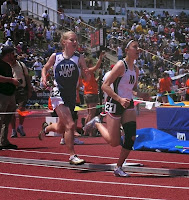"How important is it?" "What is the power of positive thinking?" "How can I embrace positivity in my life, and how will it positively affect my life?"
I have always been someone who approaches life in a two-fold way. The part that usually comes across is tentative, exacting, cautious, and "just-so." The other part of me is adventurous, curious, outgoing, a big dreamer. I have often described myself as an "extrovert disguised as an introvert."
Just like my personality types, my thought patterns are often at war with each other. I have experienced some rather loud negative voices, but underneath...
I have a voice that I imagine lies deep within me, somewhere in my lower abdomen. This is the one voice that, while often trumped by negative thoughts, at times comes out. And when it does, something fantastic in my life always happens. This is the voice that represents the best part of me. It feeds my imagination with big dreams, positive visualizations....and it tells me the truth about myself. It gives me images of who I am apart from anyone else's opinion. It shows me my inner artist, happy person, and my inspired, faith-filled side.
I have gone through many bouts of severe negativity in my life. However, that inner positive voice has always has been there telling me that life should be different, that a grand potential lies within each life and I was missing mine somehow.
I believe I am not alone. All of us have voices of negativity and positivity. Humans are naturally wired to look at the negatives, because prior to civilized life, we needed that heightened sense to merely survive. The problem is, we have carried over that "survival instinct" into our modernized lives. This instinct, unless "tamed" and retrained, will consume our potential for progress.
The music world is full of people who love their art, but also full of negativity. Competition for spots in colleges, performing groups, and other auditions can leave many players feeling anxious. I know I have often felt like I need to "play better" in order to be "good enough." I have felt competitive pressure against others and I have felt others start to push back at me from the same pressure in their own lives.
The negative person starts kicking in the survival instinct and playing for approval rather than for creating a beautiful work of art. This leads to the many negative voices trumping the positive voice with thoughts like: "I'll never play well enough." "I have to be better." "What if I'm never good enough for people to want to hear me?" "What are they thinking about my playing right now?" "There are so many notes on this page, how will I play them correctly?"
I have gotten to a point in my life in which I am simply tired of suffering on stage. I'm tired of feeling this ball of energy in my abdomen and having it stay stuck there. I'm tired of seeing beautiful videos of my flute potential playing in my imagination and then being drowned in fear on stage.
I no longer want to play to impress others. While I want them to enjoy my music, I want to enjoy it as well. I want to release the ball of energy and share all the pent up musical emotion I carry around with me on a daily basis.
I decided this week to be positive.
I started to speak positive words to myself. "I am good enough, just as I am."
I took my iPod to the practice room with me. During every practice break, I turned on a positive Christian song to remind myself what I was doing here in the first place.
I looked around me and noticed the small blessings in my life, which, cumulatively, added up to very large blessings.
I channeled my attention to focus on what my body was doing. I discovered what was causing my neck pain, and many of my technical and tone problems (I was tightening at the base of my neck, which channeled tension throughout my body). I found that flute playing should feel easy and free, not difficult and forced.
The more I immersed myself into this positive mindset, the more I enjoyed my practice session. I started enjoying playing my instrument. I became more thankful. And it is beginning to translate into my performances...
Today, I was able to perform without feeling very nervous at all. My music released and sang.
In a fallen world that often seems consumed by the negative, we must choose to take an active role in embracing positivity. Feed it to yourself as much as you can. Don't worry about doing things "right" or to please anyone else as much as to release your gift freely.
"What is the power of positive thinking?"
It changes everything.
"I think it's critical that we begin to dismantle the word 'performance,' because somehow it implies perfection or some ideal - or doing something for someone else. When I perform, I don't know how it's going to turn out. And even with a piece of music, I must stay open to the nuances that change it each time and make it present. It's never going to sound like it did yesterday again. Right is - big deal. Beautiful sounds are - big deal. But contact. Real human contact, through music, is rare."
~ Susan Osborn vocalist

